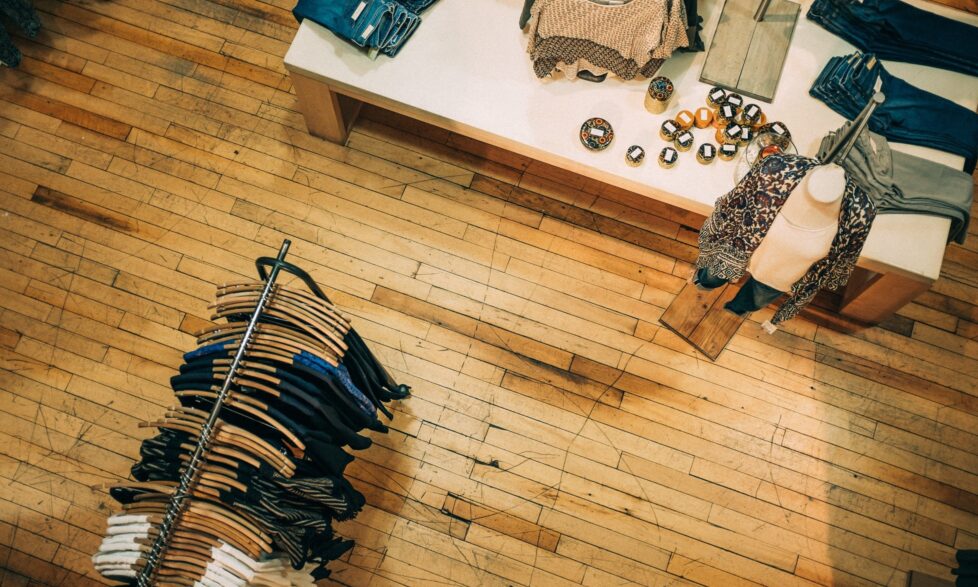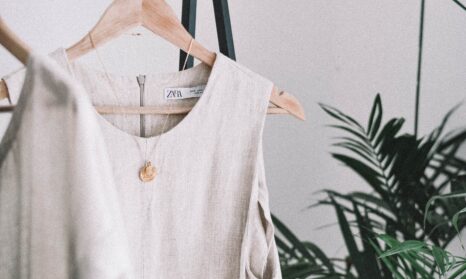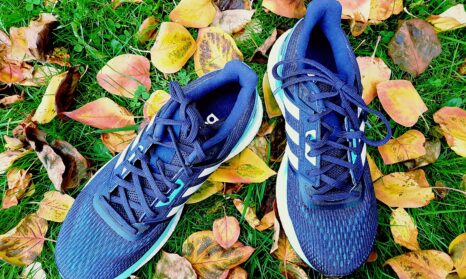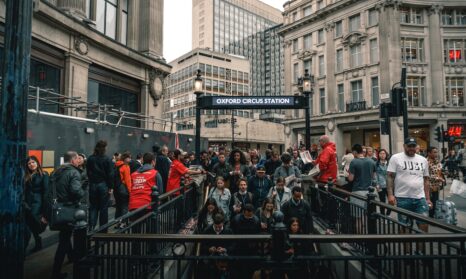How small clothing brands are taking on fashion’s biggest issues
Back in 2010, I created sustainability standards for B&Q’s textiles, which went on to inform international Sustainable Product Guidelines for its parent company Kingfisher Group. Ten years on, it’s disappointing that many of the issues we highlighted in our research are still prominent in the textile industry, as my colleague Sophia Zielinski recently explored in her blog on fashion’s sustainability failings.
But change is on its way – and heroically, much of it is being led by some of the smaller brands. Through a variety of innovative materials and business models, many budding businesses are entering the market. Some address multiple issues, others are tackling a specific challenge.
Positive trends
Two of the biggest barriers to a more sustainable fashion industry are the materials used in clothing and what people do with the clothes once they’re done with them.
Most high street clothing is made up of composite fibres which are a mix of different materials, meaning they’re almost impossible to recycle.
Fortunately, a growing number of brands are starting to make use of fibres and fabrics that are better for the environment – ones that reduce water consumption and lower energy inputs (like hemp and linen) or use recycled materials.
Brands are also starting to tackle the huge issue of post-consumer waste, from promoting timeless and high-quality designs through to providing lifetime guarantees.
And many fashion brands are reflecting the wider trend for big businesses to frame their social and environmental responsibilities in terms of corporate ‘purpose.’ This is exciting to see as it’s creating a whole new way of engaging with customers and truly having a positive impact for people and planet.
New sustainable brands entering the market
So, what does all this look like in practice? Outside my role at Bioregional, I have taken on an exciting new position as ethics and environmental advisor to Baobab Avenue, an ethical shopping finder that gathers products across multiple brands.
In this role, I’ve been reviewing the ethical credentials of potential brands. With more than 100 promising vendors identified as claiming ethical credentials, here are some that are getting to grips with fashion’s biggest issues:
Sustainable materials
Riley Studio is committed to sourcing the best materials including:
- ECONYL® yarn: a form of regenerated nylon made from post-consumer waste such as abandoned fishing nets and carpet flooring, as well as pre-consumer waste like fabric scraps.
- Recron® GreenGold: a polyester fibre, made by Reliance, created from post-consumer plastic (PET) bottles, helping reducing the consumption of raw materials and energy, and water and air pollution.
- Lyocell: a man-made cellulosic fibre made by dissolving cellulose or wood pulp using an innovative spinning process. It shares similar properties with other cellulosic fibres such as cotton and linen.
Workers’ rights and transparency
Lucy and Yak sells ethical dungarees. The team have worked with a tailor in North India to establish a factory with good pay (four times the state minimum wage) and conditions.
They use Instagram to share stories of about the people in their supply chains, with 229,000 followers – and counting. And, refreshingly, they acknowledge they are far from perfect.
Purpose-led – general focus
Community Clothing is a social enterprise that measures its success by tracking not just sales, but its social performance.
Did you know that for several months of the year most clothing factories in the UK are operating well below full capacity because of seasonal demand? Community Clothing uses this space during quieter months, creating jobs and boosting the British-made clothing sector.
It’s also taking on the issue of waste by turning ‘deadstock’ into limited edition clothing, creating more jobs.
Empowering women and girls
Mayamiko is based in Malawi and provides training in sewing, tailoring, accountancy and business skills to disadvantaged women. Trainees receive a recognised qualification as well as mentoring, guidance and access to a micro-finance scheme.
Mayamiko also supports girls in the local area. They can often miss around four days of school per month because they lack access to sanitary products, so Mayamiko is making reusable sanitary kits using scrap fabric from its workshop, and lovely organic cotton for parts of the pad in direct contact with the body.
Care and repair – tackling waste
Riley studio offers a lifetime guarantee, helping customers repair any products that develop a fault. At the end of a product’s life, Riley will arrange for it to be recycled through its own value chain.
Simple Animal is tackling waste within the manufacturing process by through its Imperfectionists range of t-shirts that are sold at a lower price because they have a small (or sometimes large!) flaw.
Lowie repurposes products that didn’t sell well into new styles as part of its sustainability commitments.
If you’re starting to think about these issues, I suggest doing the following to help get you on the right track
It’s fantastic to see these brands responding to the climate and ecological crisis by putting these issues at the heart and ‘sole’ of how they do business. But what will it take to see this kind of innovation among the bigger brands and retailers? Because that’s essential if we’re to achieve the scale and speed of change needed.
If you’re working at a company that’s starting to think about these issues and need some help, I suggest doing the following groundwork to help get you on the right track:
Understand the most material issues for your business. A materiality assessment will help you to understand the environmental, social and economic issues that matter most to your business. This should be informed by analysis of your own operations and product range, stakeholder views and a horizon scan of future trends that may present either risk or opportunity for your business. This will ensure that you then develop plans to improve areas of high impact and importance to your business.
Develop in-house skills and knowledge. We can be forgiven for thinking that, thanks to the fantastic work of climate activists like Greta Thunberg, we all “get it” now. Sadly, we don’t – many people are still unaware of the urgent need for sustainable action.
So, a crucial early stage for any company embarking on its sustainability journey is staff engagement. Ideally, all staff should receive some level of sustainability training, with more bespoke modules for those with direct responsibility for critical functions like design and buying.
At B&Q, we created a ‘One Planet Home’ training module. Given the same status as health and safety training, it became mandatory for all staff to complete before they could go on the shop floor.
Beyond the training, you can then look at how to embed sustainability into peoples’ roles and objectives.
Think circular. Any materiality assessment should show that transitioning to the circular economy forms a fundamental component of future business strategy in fashion. Using customer insights data would be a useful starting point for better understanding how customers use your products, to help inform how you could offer these in a way that consumes fewer resources.
Take a winter coat for example. In the UK, you might wear a coat for 4-5 months of the year. The rest of the time it’s sitting in your wardrobe. Could a rental model work better for winter coats? Or a Christmas party outfit – worn once and forgotten, do these need to be easily recyclable or again, would a rental model work, which would allow people to access the latest fashion every year?
There won’t be a ‘one size fits all’ – it’s likely you will need to deploy several different circular business models appropriate to the products you offer and how they are used by your customers. Check out our guide to Cracking the Circular Economy which explores the different business models that could be adopted.
Change is happening - don't be left behind when it comes to the hottest business models in fashion. Which are you trying on for size to make sure your fashion business is responding to the climate and ecological emergency? Do get in touch and let us know.







